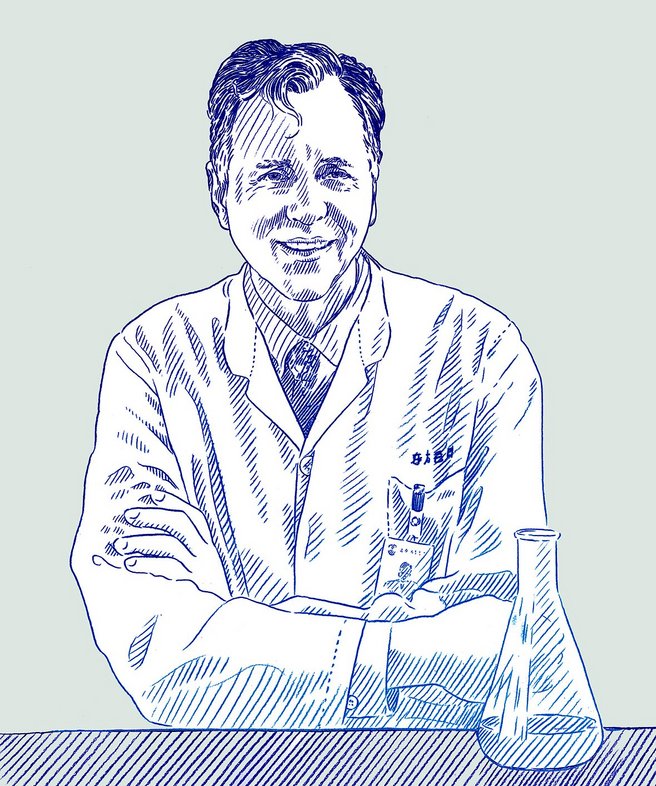JUST ONE WORD

Sometimes there is little choice but to just try things out on yourself. In my case, I wanted to prove that stomach ulcers are primarily triggered by certain bacteria—and not by stress or spicy foods. I first attempted to infect animals with the bacterium to prove my theory. But then it turned out that the animals were resistant to Helicobacter pylori bacteria. So, two months later, I decided to use myself as the guinea pig. Hardly anyone knew about it at the time. It wasn’t until years after the experiment that I made public that I was the subject who had ingested the bacteria.
I remember exactly how nervous I was when I ingested the bacteria. I had stirred them into a sort of beef broth and drank the entire mixture down in one gulp, much like a shot of whiskey. I had a similar feeling before my first bungee jump: while you’ve carefully gone over the risks and know that, in principle, nothing bad can happen, you’ve never done it before. So you cross your fingers and hope that everything turns out okay.
Of course, it would have been easier if the testing on the animals had already shown some results, because I did suffer a severe bout of gastritis due to the experiment, but that was naturally what I wanted to prove. The inflammation itself felt as if my stomach had suffered an extreme sunburn. It was pretty unpleasant. But it was important and the right thing to do to brave the experiment on myself. It was a big step forward for medicine and research. People with stomach ulcers can be helped better since then.
There’s a far greater diversity of research possibilities these days as compared to back then. There are many more ways to get valid results even without self-experimentation. Nevertheless, well-planned, safe self-experimentation shouldn’t be discontinued altogether. It is still one of the most efficient and usually also the fastest way to develop new treatments and move research forward. What’s exciting about self-experimentation is that it arises from the researcher’s curiosity. And that is still the best motivation for research.